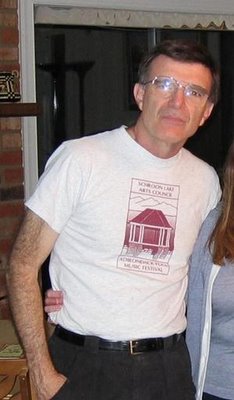It's a cold April. That doesn't mean the world isn't warming. Just as the warm December and early January weren't dispositive proof of anything, either.
I will note, though, that the 70 degree days in December were a bit creepy; and this was the first winter ever on record in which there hadn't been a snowfall in New York City by January 4th (the first snow didn't happen until January 11 this year).
Also, if you hear global warming deniers saying that Mars is warming too, direct them
here. The basic point is that Mars probably isn't warming. Some people erroneously inferred warming from receding polar ice caps, but Mars is getting
less solar irradiance than it was 5 years ago. The South Pole ice is receding, so something besides a brighter sun is causing the ice to disappear. It's not clear what it is, but it IS clear that it's not a global phenomenon.

